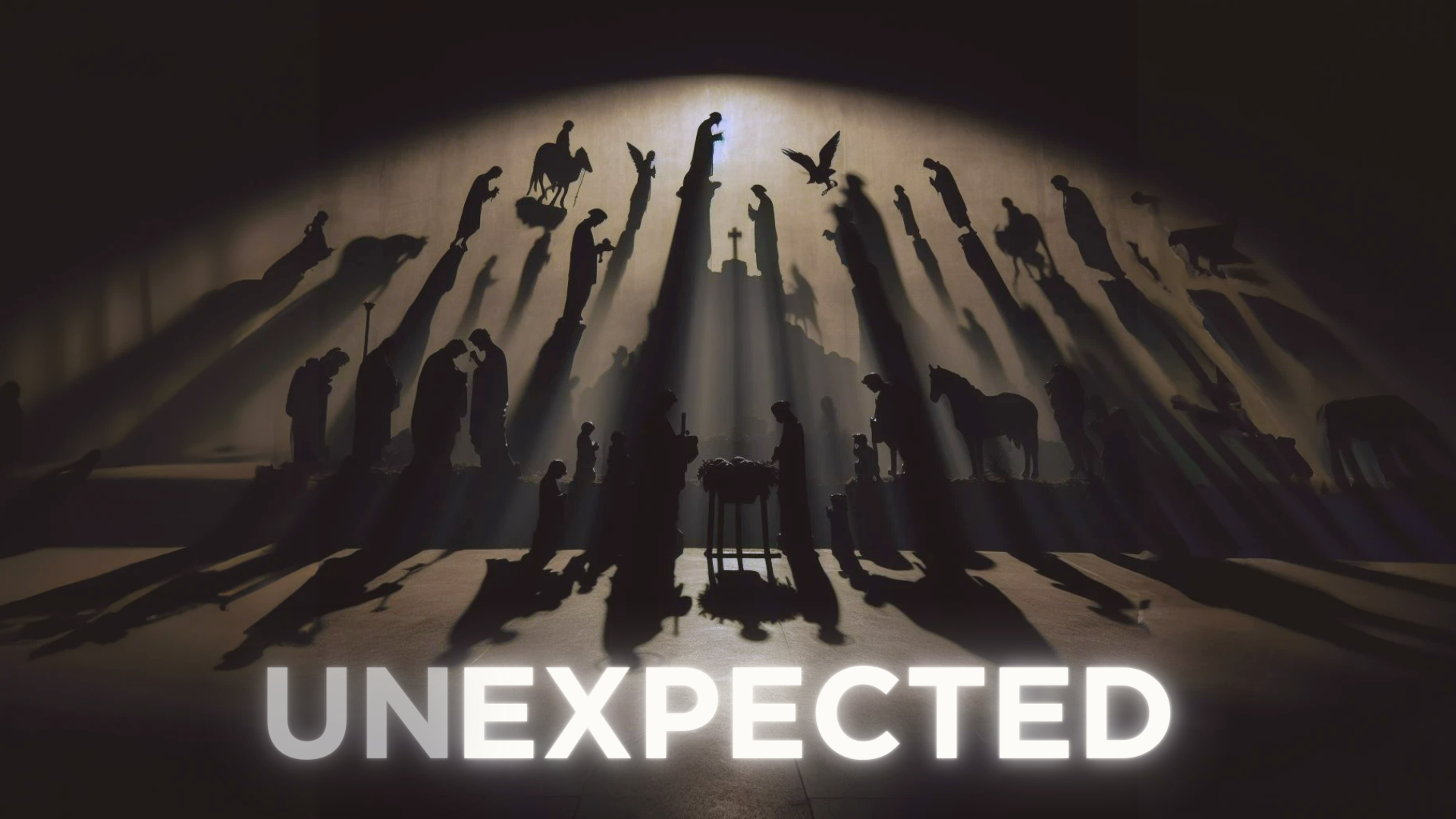“Why us?” - The Wisemen
In this series, we take a closer look at the Nativity story through the lens of each character to see how God works in unexpected ways through unexpected circumstances.
Scripture: Matthew 2:1-12
Have you ever disagreed with your GPS? The voice from your phone tells you to turn one way when your intuition tells you to turn the other way. In this scenario, who do you listen to? This was the conundrum the Wisemen found themselves in as they entered Israel’s borders and saw the star that had guided them faithfully along their journey pointing towards Bethlehem while their intuition told them that, surely, the newborn King would be at the palace and not some small village. As the story goes, they decided not to listen to the star but instead chose to follow their own wisdom. In a most tragic turn of events, this costly mistake ultimately leads to the murder of many infants at the hands of a megalomaniacal pseudo-king. I say “pseudo”-king because in the eyes of so many Jews at the time, King Herod was hated for not only being a puppet ruler of Rome (notice the Greek name) but also for his status as a Gentile who converted to a Jew. Hence, his reputation as one with an illegitimate claim to the throne. Therefore when the Wisemen appeared at the palace to announce the arrival of a new king, you can imagine how Herod was not too pleased. But like the Wisemen, Herod also chose to follow his own intuition and sought to deceive the Wisemen into revealing this new king’s origins so that he could kill the baby. Suddenly, the stakes are raised and this simple journey has turned into a battle of wits. Who will be the victor? This crafty King who works in secret or the true King who is born in a humble manger? Who will these Wisemen pledge their allegiance to?
As we all know from having heard this story a thousand times over, the baby Jesus is indeed born, and God’s purposes are accomplished despite Herod’s cunning. But is this all there is or is there a message that runs deeper? What truth is God guiding us to by putting together this celestial spectacle so that these Gentile Wisemen might find their way to Bethlehem? What is true of each character in this story is that they both failed to recognize the limits of their own wisdom. The results of their decisions are familiar to many who have suffered throughout history at the hands of men busy with their own power struggles. Truth be told, the wisdom of the world summed up in intellectualism and materialism only goes so far in this world. There are many things that science cannot answer and the human condition is one of them. In this way, the wisdom of both Wisemen and kings has nothing to offer the broken families affected by this horrific event. And yet, amidst all of this darkness, hope shines still, like a great star on the darkest of nights. Hope guides us still to the true King who confounds all the wisdom of the world by his mere existence. This precious child born in a humble manger is here not just to claim his rightful place on the throne but is destined to make the world right again by his own sacrifice. Rather than adding to the power struggle, this child defies all logic as he represents a God who stepped down from his throne to take on flesh, live the life we could not live, and die the death we could not bear. All this to make things right again; for us as much as for those who suffer at the hands of the “wise”.
This is the hope of Christmas that shines in the face of whatever tragedy you face in life. It might not make sense and, to the world, it might even seem foolish but it is a message that is desperately needed in our broken world. The question we all face is whether we will trust it as it leads us in unexpected ways or if we will follow our own wisdom, as the Wisemen did. In the end, does the journey we are on lead to the palace or the manger? Also, notice the profound effect this truth has on these Wisemen as they realize the course of their actions; they lay down gold, their materialism; frankincense, their religiosity; and myrrh, their control over the future and their own lives. All of these are now worthless and are not worth pursuing anymore to these Wisemen who have discovered something greater. As an act of submission, they lay it all down at his feet. To sum it up, these Wisemen have discovered a wisdom that the world cannot offer by its own devices, rather, it is a wisdom that is only achieved by God’s guidance.
Study questions:
In your own words, what does it mean to be wise?
In what ways are we like these Wisemen, listening to our own intuition over God’s direction?
How do you find hope during dark times?
In what ways is the wisdom of God humbling to the wise?
Which gift (gold, frankincense, myrrh) do you struggle with laying down at Jesus’ feet?

